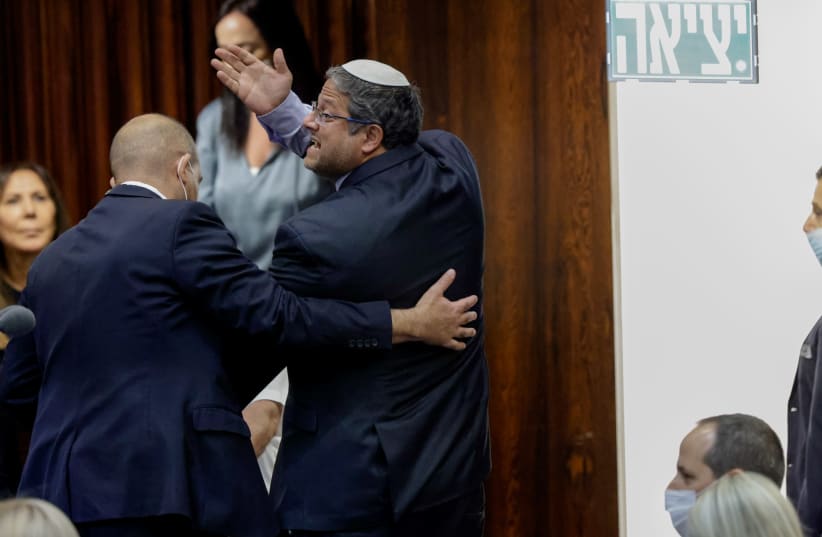Otzma Yehudit MK Itamar Ben-Gvir on Wednesday started a public fight with the police over his interrogation on February 9 and whether a request to fingerprint him was a standard or political move.
Ben-Gvir claimed that the police asked to fingerprint him in order to intimidate and humiliate him whereas the police said that it was a standard procedure for identification purposes for all suspects.
His interrogation came following a December 22 incident in which he pulled out a pistol after he said he felt threatened by two Arab security guards at an event in Tel Aviv.
ח"כ איתמר בן גביר התעמת עם מאבטח ערבי - ושלף אקדח. בן גביר: "קיללו ואיימו לפגוע בי" | תיעוד@ZeevKam @ittaishick pic.twitter.com/Sjwi6nItkl
— כאן חדשות (@kann_news) December 22, 2021
Video from the scene showed Ben-Gvir shouting at the security guard “you will not threaten me!” while waving the gun around and then pointing it at the ground.
“You wanted to beat me? You will not threaten me!” yelled the MK, adding that “if you threaten me, I’ll take care of you.”
Another video showed the security guards telling Ben-Gvir and a number of people with him to drop the weapon and go outside “if they’re men,” with one guard saying “I will f*** you all up.”
None of the video footage showed the guards threatening Ben-Gvir as he claimed and he was given a lecture by the Knesset security office about regulations for when he is allowed to pull his gun out.
Ben-Gvir has been upset that he was questioned as a suspect, but he said he was more upset by the fingerprinting, which he called “crossing an illegal red line.”
He sent a letter to Attorney-General Gali Baharav-Miara to complain since she must approve a criminal probe and some of the investigative tactics in relation to an MK.
The Otzma Yehudit MK said he went through multiple rounds of debates with his interrogators about whether taking his fingerprints was illegal given his MK status until they backed off.
However, spokespeople for the Justice Ministry referred the matter to the police and implied that Baharav-Miara was not involved in the fingerprinting move or other specific tactics beyond the initial approval to probe Ben-Gvir.
The police responded that Ben-Gvir was summoned for questioning following the December 22 incident.
“After receiving a complaint, relevant investigative evidence, video footage, interviews using media were all collected as well as testimony from witnesses and from two other suspects involved in the case,” said the police.
After approval of the attorney-general an agreed-upon date was set for the interrogation with Ben-Gvir, said the statement.
Next, the police said that as part of every interrogation of a suspect they take fingerprints in order to positively identify the suspect.
“To erase any doubt and to prevent any attempt to mislead the public, this is not a specific fingerprinting process, but rather an identification process,” said the police.
The police added, “We are saddened by the attempt to drag the police into a political debate and to frame actions taken according to the law as being politically biased or having improper motivations.”
However, the police did not respond to a follow-up question about why they needed to identify Ben-Gvir given the multiple videos of him at the incident and his admission of being involved (he simply contends that his actions in the incident were lawful).
The incident in December set off polar opposite condemnations from Meretz and Joint List MKs against Ben-Gvir and from Religious Zionist MKs against the police and the coalition.
Jerusalem Post Staff contributed to this report.
